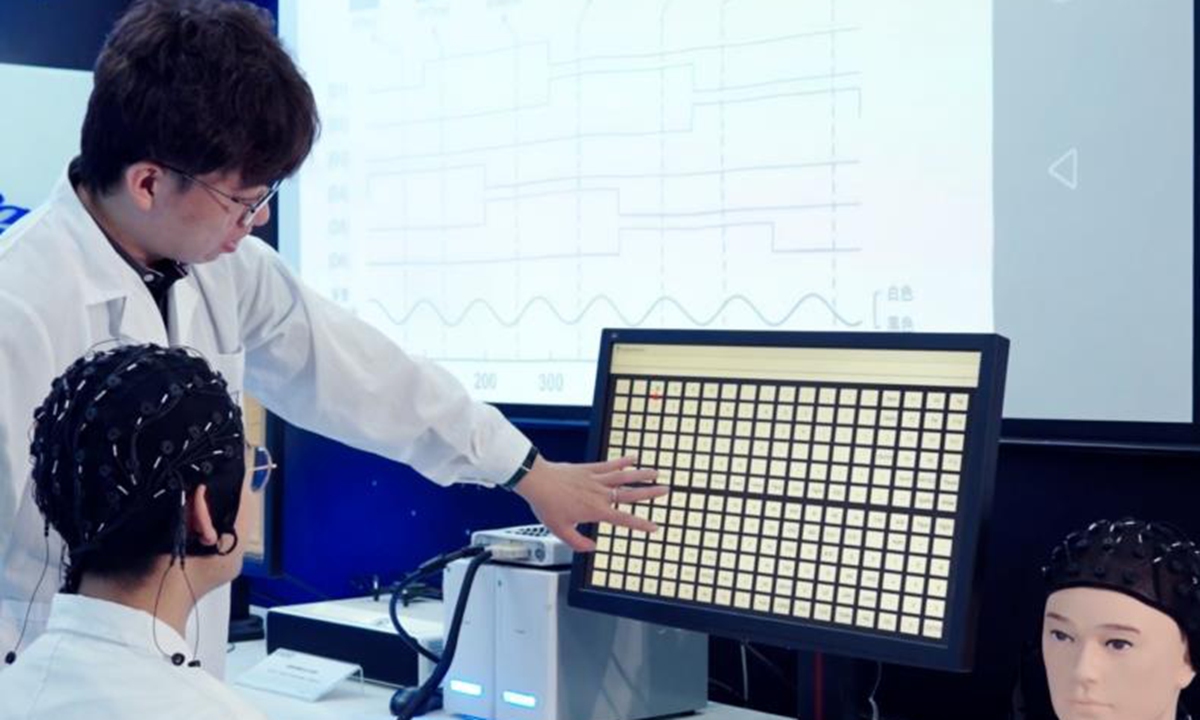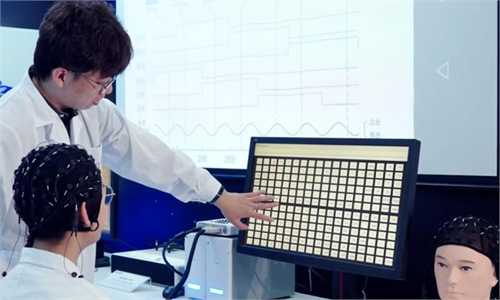
A neuroscience team from Tianjin University demonstrates the high-speed brain-computer interface (BCI) with 216 targets on May 18, 2023. Photo: Courtesy of Tianjin University
Tianjin University's neuroscience team has made a groundbreaking achievement by launching a high-speed brain-computer interface (BCI) with 216 targets during the 7th World Intelligence Congress 2023.
This cutting-edge device enables users to type at impressive speeds using their thoughts while wearing a compact BCI device and interacting with a virtual keyboard featuring 216 keys. The system also incorporates commonly used syllables in both Chinese and English spelling, offering seamless one-click switching between Chinese and English input methods, Global Times learned from the team.
BCI establishes a "dialogue" between the brain's electrical activity and an external device. It is categorized into invasive and noninvasive types, with the noninvasive variant, based on electroencephalography (EEG) signals, being safer, more convenient, efficient, and holding tremendous potential for commercial and industrial applications, according to the team.
The number of targets and commands is a key indicator of how well BCIs can decode the brain's intentions, Xu Minpeng, a professor from the neuroscience team at Tianjin University, told the Global Times.
Tianjin University's team has gained global prominence by developing the first high-speed BCI with over 200 targets.
At present, the team has built a domestic full-chain noninvasive BCI technology including chip, electrode, algorithm and system. Three core indicators, the EEG recognition accuracy, the number of targets and information transmission rate have reached the highest international level, according to the team.

